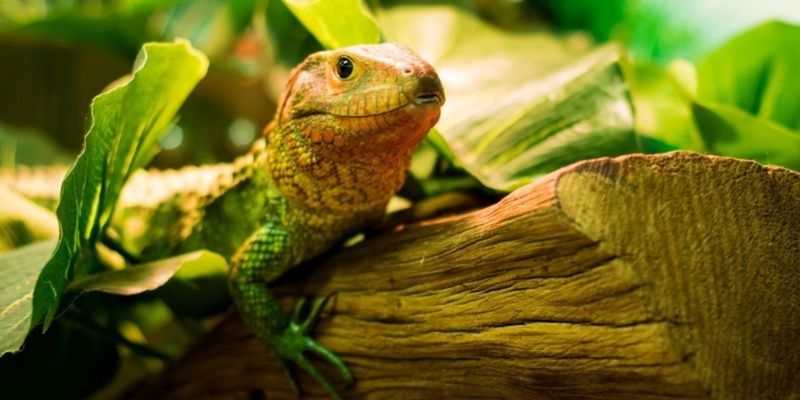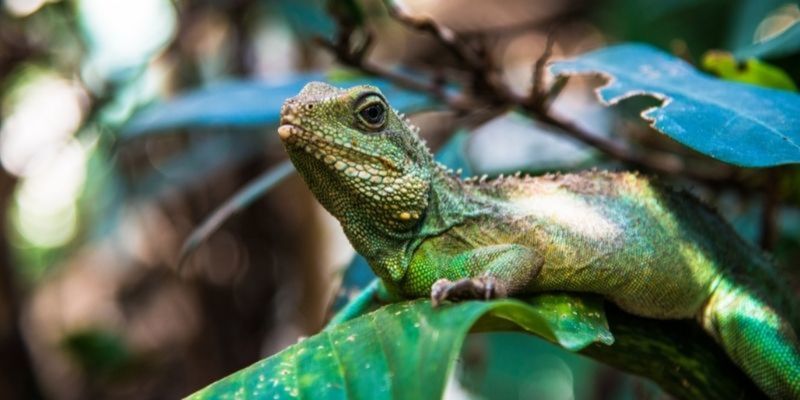Reptiles have been in existence for millions of years and are the most species-rich group of terrestrial vertebrates. They can live for centuries in some cases, though despite being so fascinating, many people would still rather run a mile than come into contact with one.
Whether you love or loathe reptile species, it’s important for everyone to know the vital role they play in the ecosystem. You may also be surprised to learn just how beneficial they are to human existence too, and with 10 per cent of reptile species being at risk of dying out, there’s no better time to learn than now.
The part different species play in ecosystem health is becoming clearer thanks to the ongoing studies of animals and creatures. As more importance is placed on this area of discovery, qualified professionals in the animal research sector are growing in demand.
If you’re interested in the study of reptiles, the part reptiles play in our ecosystem and a reptile-related career, read on.
They Are Good Indicators of Environmental Health
Amphibians have permeable skins that easily absorb toxins, so they are very sensitive to pollution. This is a well-known indication of environmental threats, however, reptiles play their part in raising the alarm too.
A number of reptile species are long-lived and slow-moving, so they are prone to suffering from habitat loss and pollution for extended periods. Therefore, a thriving community of amphibians and reptiles shows that an environment is healthy and can support the plant and animal life that exists there.
They Stop the Spread of Disease
Most reptiles are carnivores, and many of them will feast on insects and rodents who are known to carry disease. This not only helps keep undesirable pests at bay, it helps keep humans and other animals safe from harm. This is even true with the more venomous snakes that are known to feast on these pests in urban areas, as the threat of the disease far out ways the dangers from the snakes.

Reptiles Help Control Species Populations
Besides pests and rodents, reptiles are also useful for controlling the levels of other species in the ecosystem. Overpopulation of any species can have a damaging knock-on effect on the other wildlife that exists in the space.
For example, crocodiles and alligators prevent the overpopulation of fish species in coastal regions and wetlands. Their feeding habits are essential in keeping aquatic ecosystems like these healthy and balanced, which is instrumental for fisheries that make their living in these environments.
They Also Help Declining Species to Thrive
Any species that is particularly influential in its ecosystem is known as a keystone species, which is a title certain reptiles hold. Not only do reptiles help keep species’ numbers down, they also help many that are in decline to thrive!
While not as common as carnivorous reptiles, herbivorous reptiles disperse seeds and pollinate various plant species, including those that are becoming increasingly rare.
Many reptiles (even the big scary ones) act as a food source for other animals when they are young. Plus, some species, like alligators, are essential in the way they form their habitats. This is because the gator holes they dig provide an important refuge for aquatic species. They are also a source of water for birds, terrestrial animals and plants as they are often the only water-based habitat left in the dry season.
They Are Good for Housekeeping
Another important role reptiles play is keeping the environment free of unsightly and unhealthy carcasses. A reptile’s approach to hunting is generally a rather lazy one, they would prefer to strike their prey and wait for them to die rather than put in any real effort. As such, they aren’t put off by a meal that has been sat there for some time.
This means any carrion they come across is an easy win for them. This, besides making for a more aesthetically appealing environment, reduces exposure to potentially disease-causing pathogens.
Reptiles Have Helped Advance Modern Medicine
The thought of the venoms and toxins different species of reptiles use in their arsenal can be quite frightening. Though, what you may not realise is that they are vitally important for the development of modern-day medicines.
It’s hard to think that something that is designed to harm or take a life can also be harnessed for good. They are widely used for antivenoms, but they are also commonly used to treat other medical conditions too.

Reptiles that have helped advance modern medicine include:
- Snake venom has acted as a template for some of the most effective medicines used for high blood pressure, heart failure and heart attacks
- The anticoagulant properties of the Komodo Dragon’s venom have helped conditions that stem from blood clots, like strokes and pulmonary embolisms
- The terrifyingly named Deathstalker Scorpion has one of the most potent venoms of any scorpion breed. It also contains Chlorotoxin, a toxin that is being developed to various diagnose cancers
Start an Exciting Career Through Reptile Studies
If fascinating facts like these have your attention, you could take your interest in reptiles much further. Completing a course in reptile studies, like this Reptile Studies Level 3 Award (RQF), is a great way to expand your knowledge as a reptile owner or enthusiast. Allowing you to get a greater understanding of their behaviours, and how to properly care for them.
The study of reptiles is also an excellent gateway into a reptile-related career. You could take your knowledge into a job in a reptile pet supply store, or even care for them professionally as a zookeeper.
If you want to take your studies further, you could pursue degree-level study to become a lab researcher of reptile species, or work in a science field like ecology with a particular focus on reptiles. Alternatively, you could become the next Steve Irwin and help raise awareness of the importance of reptiles through the media.
In any case, a course in reptile studies is an ideal way to start building your knowledge.
Study Reptiles with learndirect
You can study reptiles online with learndirect, to start building essential knowledge for any reptile-related career.
You’ll examine the biology of reptiles, from snakes to crocodiles, lizards and turtles. You will also learn about the in-situ conservation efforts for different reptile species, as well as how to identify certain reptilian behaviours. Finally, you will understand how to properly care for different species in addition to animal welfare and ways to promote it.
What’s more, completing this course online allows you to fit your studies comfortably around your lifestyle.
Find out more by discussing this reptile course with our Course Executives today. They will answer all the questions you have and help you take the next steps to enrol.
Call them now on 01202 006 464, contact them online or click here to view the course in more detail.
Alternatively, if you’re ready to start a rewarding animal career but don’t know which path to take, click the link to download our FREE animal course brochure below and find the course that suits your goal.



















